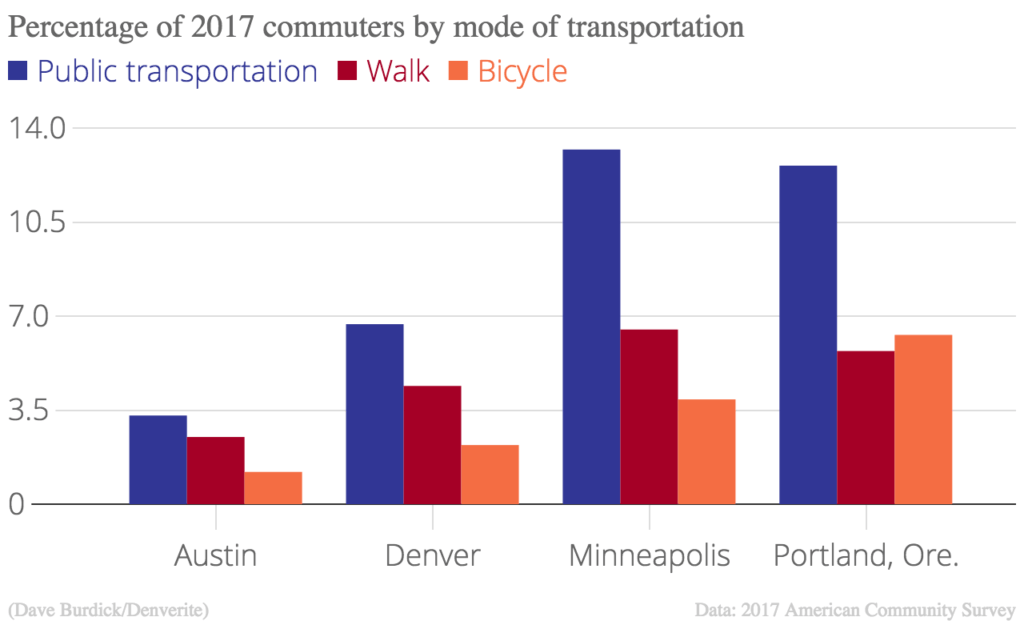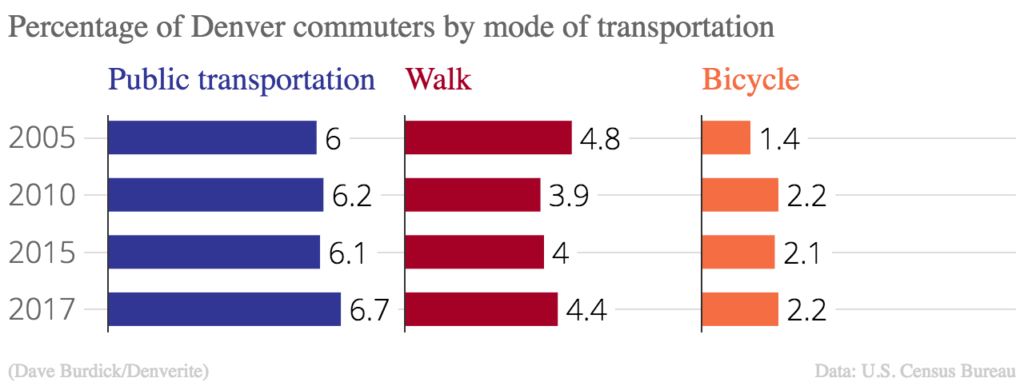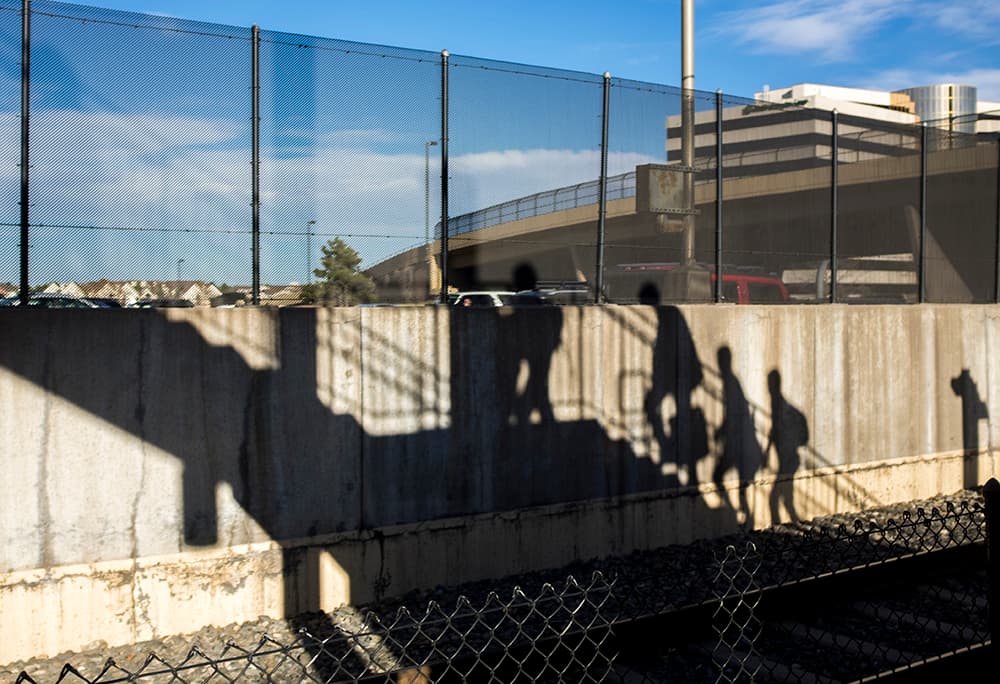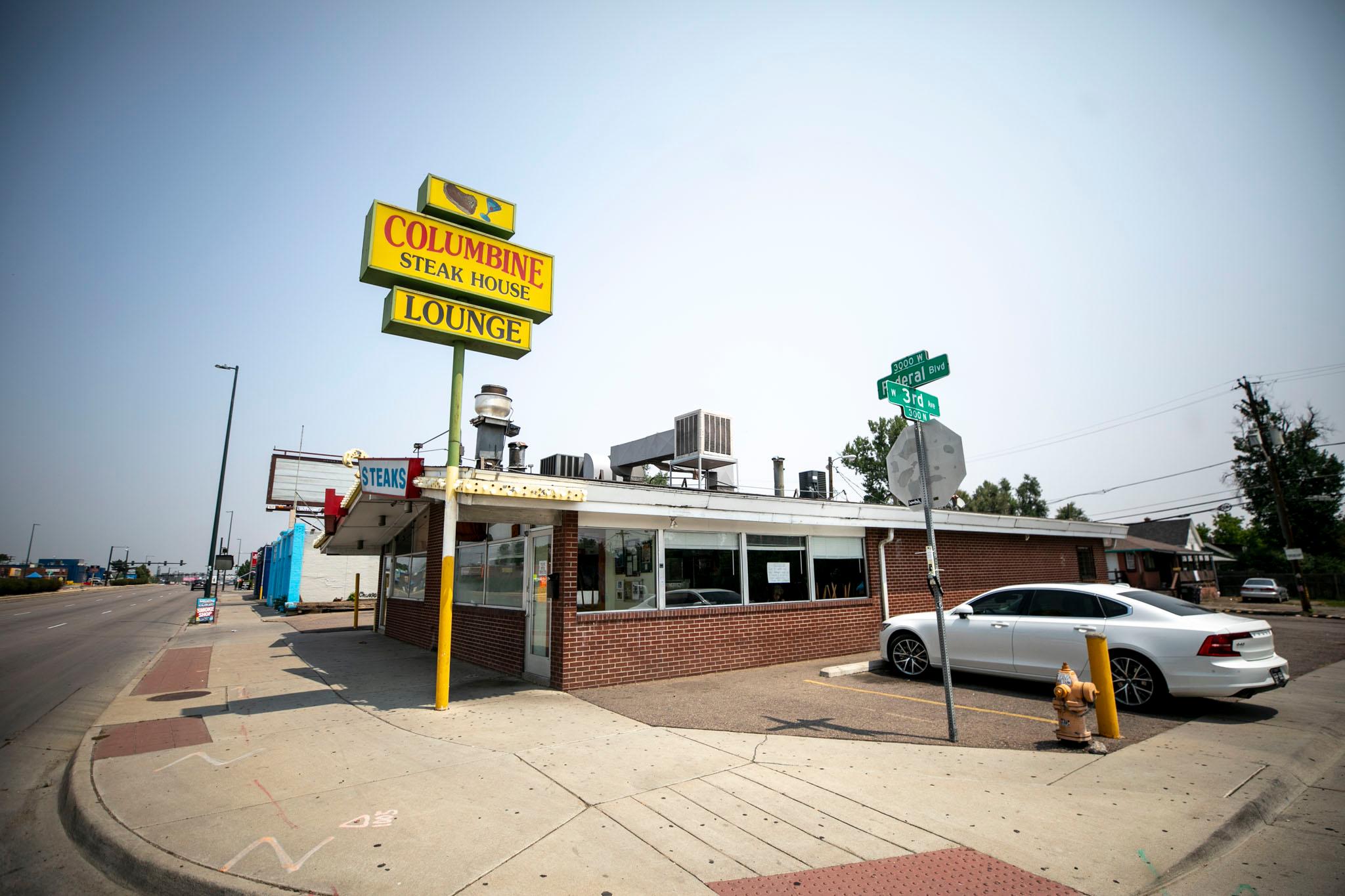Data released by the U.S. Census Bureau this week showed that Denver is continuing its trend away from cars, but not necessarily toward alternative modes of transportation -- or the goals the city has set.
Last year, a smaller percentage of Denverites commuted by car, truck or van than in any year at least dating back to 2005.
In 2017, the data shows that 75.9 percent of Denverites commuted by car, truck or van, and 67.9 percent did so alone.
In 2016, 77.6 percent of us commuted by car, truck or van, with 69.7 percent driving alone. And that year was down from 2015, before which it stayed at about those levels without much movement.
In other words, the trend is away from people driving alone, or at all -- but it's mainly because a larger percentage of people are working at home, not because they're choosing other forms of transportation.
Earlier this year, the city released a new climate plan.
Mayor Michael Hancock set goals for the city through 2050 in a plan called the 80x50 Climate Action Plan (PDF), which builds on a Mobility Action Plan announced in 2017 (PDF). They include benchmarks on measures like electric vehicle registrations, lowered energy use, renewable energy use -- and transportation. The goals are ambitious and the city isn't particularly close to achieving them.
By 2030, the city is supposed to see:
- 16 percent of commuters using public transit
- 9 percent of commuters walking to work
- 8 percent of commuters biking to work
Here's what the Census Bureau says 2017 looked like in Denver:
- 6.7 percent of commuters using public transit
- 4.4 percent of commuters walking to work
- 2.2 percent of commuters biking to work
And here are the nationwide 2017 numbers, for context:
- 5 percent of commuters using public transit
- 2.7 percent of commuters walking to work
- 0.5 percent of commuters biking to work
Let's zoom out.
Some of Denver's peer cities have more non-car commuters, some don't.

The American Community Survey data online goes back to 2005, and if you try to picture 2005 Denver, you're already thinking about how much it has changed, how many people have moved here, how the city feels in some ways more metropolitan, or grown-up, or gentrified. Despite all of that change, there isn't major movement in how people get to work.

There's an awful lot of talk about how much the city's hoping to invest in bike lanes for the long term through its Denveright plan. We've heard about how the city hopes to have an almost unimaginably more robust bus network. And the Denver Moves: Pedestrians and Trails plan is prioritizing constructing sidewalks that provide connections to transit -- but it's kind enough to remind us early in a 188-page document that, like all of the Denveright plans, it's "a long-term, financially unconstrained plan for achieving a vision...."
So what's actually going to happen soon?
The city hopes that a larger share of Denverites will be using transit as denser developments (and perhaps new Denverites) are funneled toward transit stations. That's the whole idea behind the special zones at 38th and Blake and 41st and Fox, which are already seeing big new projects. The city's mobility action plan also says it'll consider buying more transit service, but RTD has said the resources just aren't there.
While Denveright as a whole may seem a bit pie-in-the-sky, Streetsblog reports that an explicit recommendation to prioritize walking over all other modes of transportation on every Denver street has a better chance of guiding policy sooner rather than later.
And Hancock just made his pitch for 2019 spending, which included more money for bike lanes. That would include projects like -- two summers from now -- making the Broadway bike lanes permanent and expanding them so they reach from 7th Avenue almost down to Broadway and I-25.
Part of the reason the city came up with the Denveright plans was to get people excited.
If it works, maybe more people will change the ways they commute and Denver will get closer to its goals. The city may get a helping hand from traffic as it gets worse. For what it's worth, 2017 saw the highest average travel time to work in Denver -- at 26 minutes -- since 2008, when it was 26.2 minutes.













